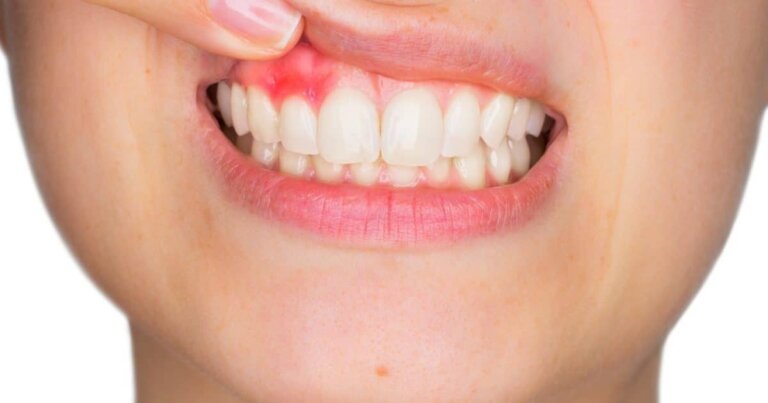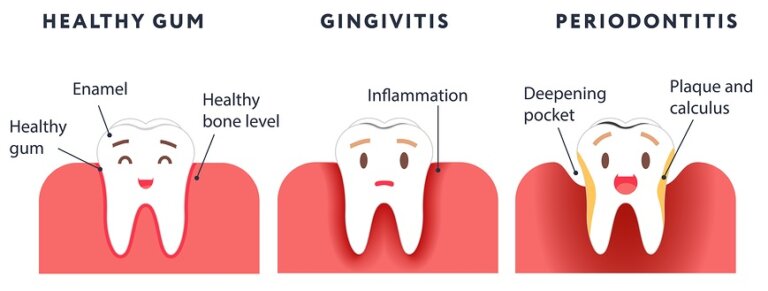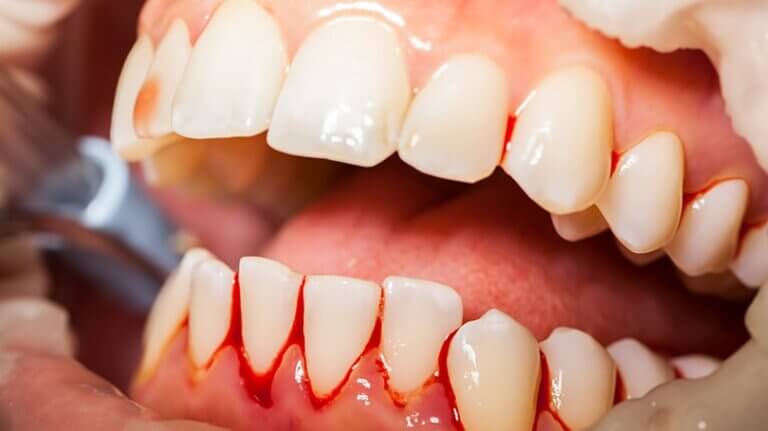Gum Pain

What Is Gum Pain?
Gum pain is a common dental issue that ranges from mild discomfort to severe pain, affecting everyday activities like eating, drinking, and talking. Causes of gum pain vary, from poor oral hygiene to infections and gum disease. Knowing what causes your gum pain is essential for effective treatment, prevention, and maintaining a healthy smile.
Before you contact a Toronto dentist to examine your Gum Pain, there are some things you should know as a patient:
- What Causes Gum Pain?
- Signs And Symptoms Of Gum Pain
- Treatment Options For Gum Pain
- Managing Gum Pain Until You Can See The Dentist
- Frequently Asked Questions About Gum Pain
If you have questions about Gum Pain or other dental problems, please contact us for more information.
What Causes Gum Pain?
Understanding the root cause of your gum pain can help you find the right treatment. Here are some common causes:
- Poor Oral Hygiene: Inadequate brushing and flossing lead to plaque buildup, irritating the gums and causing pain.
- Gum Disease (Gingivitis and Periodontitis): Gingivitis is an early stage of gum disease marked by red, swollen, and bleeding gums. Left untreated, it can progress to periodontitis, a more severe infection damaging gum tissue and bones.
- Infections: Bacterial, viral, or fungal infections like canker sores or oral thrush can cause significant pain.
- Tobacco Use: Smoking or other tobacco products irritate gums, causing pain and increasing gum disease risk.
- Hormonal Changes: Pregnancy, menstruation, or menopause can make gums more sensitive and painful.
- Dental Appliances: Braces, dentures, or poorly fitted dental devices can put pressure on the gums, leading to soreness.
- Vitamin Deficiencies: Lack of vitamins, particularly vitamin C, can weaken gums and cause pain.
- Medications: Certain medications, such as those for blood pressure or chemotherapy, can cause gum pain as a side effect.
Knowing these causes is essential for addressing gum pain effectively. For more information about Gum Pain, please contact us.

Signs And Symptoms Of Gum Pain
Identifying the symptoms of gum pain early can help you get treatment before issues worsen. Here are some common indicators:
- Red, Swollen Gums: Inflamed gums often indicate gum disease or infection.
- Bleeding Gums: Gums that bleed during brushing or flossing can be a sign of gingivitis or advanced gum disease.
- Persistent Bad Breath: Chronic bad breath, or halitosis, often results from bacteria buildup associated with gum disease.
- Receding Gums: Gums that pull away from the teeth, exposing tooth roots, may cause sensitivity and pain.
- Loose Teeth: Teeth that feel loose may indicate severe gum disease affecting the structures supporting the teeth.
- Pus Between Teeth and Gums: Pus signals an infection, such as a dental abscess, needing immediate attention.
- Sensitive Teeth: Increased sensitivity to hot, cold, or sweet foods can stem from receding gums.
- Mouth Sores or Ulcers: Painful sores or ulcers on the gums may be due to infections or other conditions.
- Changes in Gum Color: Dark or pale gums can signal poor gum health or systemic conditions.
By paying attention to these signs and symptoms, you can take proactive steps to address gum pain and maintain optimal oral health. For more information about Gum Pain, please contact us.
Treatment Options For Gum Pain
Once the cause is identified, you can explore appropriate treatment options for gum pain:
- Professional Dental Cleaning: Regular cleanings remove tartar and treat early gum disease.
- Scaling and Root Planing: This deep cleaning removes plaque and tartar below the gum line to treat gum disease.
- Adjusting Dental Appliances: Properly fitting braces or dentures can alleviate gum pressure and pain.
- Gum Surgery: Severe gum disease may require surgical intervention, such as flap surgery or gum grafting, to restore oral health.
- Regular Dental Checkups: Routine exams allow dentists to monitor gum health, detect early gum disease, and prevent pain.
Considering these treatments can help alleviate gum pain and support better oral health. For more information about Gum Pain, please contact us.

Managing Gum Pain Until You Can See The Dentist
If you’re experiencing gum pain but cannot see a dentist immediately, try these temporary pain-relief strategies:
- Over-the-Counter Pain Relievers: Ibuprofen or acetaminophen can help reduce pain and inflammation.
- Cold Compress: Applying a cold compress to your cheek can numb pain and reduce swelling.
- Saltwater Rinse: Gargling with warm salt water can soothe irritated gums and reduce bacteria.
- Hydrogen Peroxide Rinse: Diluted hydrogen peroxide may help reduce inflammation and kill bacteria.
- Avoid Irritants: Steer clear of hot, spicy, or acidic foods and drinks that can worsen gum pain.
- Soft Diet: Eating soft foods prevents further gum irritation.
- Gentle Oral Hygiene: Continue brushing and flossing carefully to maintain oral hygiene without aggravating pain.
These measures can help you manage gum pain until you can see a dentist. However, it’s essential to schedule an appointment to treat the root cause of your pain. For more information about Gum Pain, please contact us.
Frequently Asked Questions About Gum Pain
- Can stress contribute to gum pain?
Yes, stress can weaken the immune system, making it harder for the body to fight off infections, including those that affect the gums, potentially leading to pain and inflammation.
- Are there any medical conditions linked to gum pain?
Certain systemic conditions, such as diabetes, can increase the risk of gum disease and associated pain. Additionally, hormonal changes during pregnancy or menopause can affect gum health.
- Is it normal for gums to hurt after dental procedures?
Some discomfort after dental procedures is normal and should subside within a few days. However, if pain persists or worsens, contact your dentist.
- When should I see a dentist for gum pain?
If gum pain persists for more than a few days, is severe, or is accompanied by symptoms like bleeding, swelling, or pus, it’s important to consult a dentist promptly to determine the underlying cause and receive appropriate treatment.
Gum pain can have various causes, but maintaining good oral hygiene and addressing symptoms early can prevent complications. For more information about Gum Pain, please contact us.

